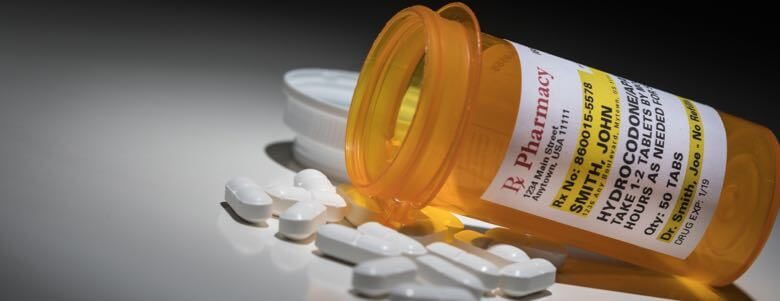Off-Label Drug Use
Although the FDA approves all prescription drugs sold in the United States, the agency can’t limit how doctors prescribe drugs after they’re on the market. Doctors often direct patients to take medications for conditions that have not been approved by the FDA. This is called off-label drug use.

Off-label drug use is when drugs are prescribed for a condition or a type of patient or a dosage not officially approved by the U.S. Food and Drug Administration. The FDA does not regulate the medical profession. The agency has no control over how doctors prescribe approved drugs to patients. So once a medication is on the market, it is up to physicians to determine the medically appropriate use of the drug.
- Off-label drug use is when doctors legally prescribe drugs for unapproved uses.
- The FDA has no control over how doctors prescribe drugs.
- Off-label drug use is not without risks.
Consequently, it’s legal and common for doctors to prescribe drugs for uses other than what is listed on the label, commonly known as off-label. One fifth of all prescriptions are off-label.
The fact that a condition or a dosage or a category of patient is not included on a label doesn’t mean that the drug is not appropriate for that use. It means only that the FDA has not approved that particular use of the drug.
Off-Label Drug Use Safety
Off-label drug use is generally not backed by the level of testing and data that allows FDA approvals. Patients don’t have the guides and warnings that come from FDA-approved labels when using a drug off-label. Doctors and patients therefore don’t always have enough information about the effects and dangers of the off-label use of the drug to make informed decisions.
Evidence Lacking
Patients do benefit from off-label prescribing that is supported by “sound scientific and medical evidence,” wrote two medical ethics professors in the fall 2009 issue of the Journal of Law, Medicine & Ethics. In the absence of such evidence, however, off-label prescribing can expose patients to “risky and ineffective treatments.” This became a concern during the COVID-19 pandemic when people began taking chloroquine and hydroxychloroquine, which haven’t been approved for the treatment of COVID-19.
The sections below provide specific examples of harms that occurred when drugs were used off-label.
- Opioids
- Authorities say powerful opioids have been prescribed off-label for patients whose pain does not justify their use. This raises the risk of addiction and overdose deaths. One example of this was the potent fentanyl drug Actiq, a lollipop approved for the treatment of pain in cancer patients who had developed a tolerance for other pain medications.
The drug maker promoted the drug to physicians who treated other pain conditions in which the drug was not approved for use. The subsequent increase in sales was linked to more than 120 deaths, including two children. - Antipsychotics
- Nursing home patients were given powerful antipsychotic drugs, including Risperdal, for symptoms of dementia, even though the drugs were considered by many in the medical establishment to be dangerous and inappropriate for such patients.
In November 2013, Johnson & Johnson agreed to pay $2.2 billion to resolve claims that it improperly promoted Risperdal to children, people with disabilities and older adults, according to The New York Times. - Fen-Phen
- A notorious example of how off-label drug prescribing can be dangerous is the use in the 1990s of Fen-Phen. Two drugs, phentermine hydrochloride and fenfluramine, were approved separately. But doctors prescribed them together for weight loss. The combination also caused severe heart-valve problems. They were taken off the market as a result of safety concerns.
Why Doctors Prescribe Drugs Off-Label
Physicians prescribe drugs off-label for a variety of reasons. Advances in medicine can outpace the FDA’s ability to approve drugs for new uses. It can take six or more years to get a new drug approved. The cost to get a drug approved for a different use may not be worth it for the manufacturer.
Then there is the problem that clinical trials don’t always include certain patients, such as children, pregnant women and the elderly, as well as some psychiatric patients.
Off-Label Awareness
At times, doctors may not be aware of all the FDA-approved indications for the drugs that they prescribe. A 2009 survey found that many doctors thought some common off-label drug treatments were approved by the FDA. In other words, sometimes they didn’t even realize that they were prescribing the drugs off-label.
Patient Responsibility
So the responsibility should also fall on the patient, and in the case of children, the parent, to ask questions when receiving a prescription.
- What is the drug approved for?
- Are there other drugs or therapies that are approved to treat my disease or medical condition?
- What scientific studies are available to support the use of this drug to treat my disease or medical condition?
- Is it likely that the drug will work better to treat my disease or medical condition than using an approved treatment?
- What are the potential benefits and risks of treating my disease or medical condition with this drug?
Psychiatric Disorders
Off-label drug prescribing is common in treating psychiatric disorders. One analysis found that 88.5 percent of all defined psychiatric disorders have no FDA-approved medication for their treatment. According to that analysis, for two common classes of psychiatric medications — mood stabilizers and atypical antipsychotics — there were more off-label uses than FDA-approved uses.
Atypical Antipsychotics
Examples of atypical antipsychotics include Seroquel, Zyprexa and Abilify. They are being used to treat an array of conditions off-label, including anxiety, attention-deficit disorder, sleep problems, behavioral problems in toddlers and dementia.
“Antipsychotics are overused, overpriced and oversold,” said Allen Frances, former chair of psychiatry at Duke University School of Medicine, according to Kaiser Health News.
Serious Side Effects
Careful off-label use may be appropriate for some patients who haven’t been helped by other drugs. Frances told Kaiser that the medications, which are designed to calm patients and to moderate the hallucinations and delusions of psychosis, are being used “promiscuously, recklessly,” often to control behavior and with little regard for their serious side effects, which can range from rapid weight gain to death.

Cancer Treatment
According to the National Cancer Institute, research has shown that off-label use of drugs in the treatment of cancer is very common. Chemotherapy and other cancer drugs are often prescribed off-label because the drug approved for one certain kind of cancer may target different types of tumors or generally enhance chemotherapy.
According to the American Cancer Society, cancer patients often present problems that have few treatment options. These patients may be more willing to try unapproved drugs.
Calling this number connects you with a Drugwatch.com representative. We will direct you to one of our trusted legal partners for a free case review.
Drugwatch.com's trusted legal partners support the organization's mission to keep people safe from dangerous drugs and medical devices. For more information, visit our partners page.

